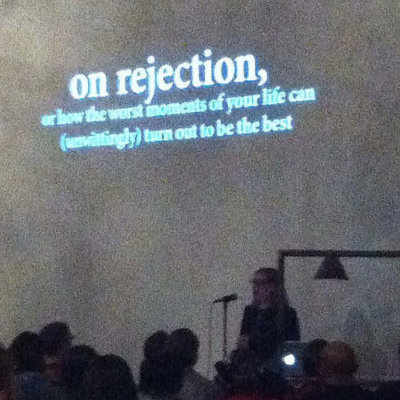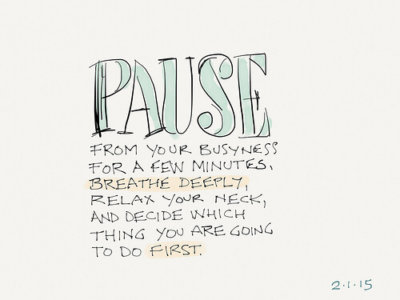How to Handle Rejection – 5 Ways Forward

By: Mark Morgan
by Andrea M. Darcy
Being rejected, whether it’s in romance, friendship, or at work, never feels good. Any advice to ‘think positively’ or ‘not to let it affect you’ rarely works.
So what are real tactics for managing rejection more effectively?
[Does rejection seem to be a pattern in your life? Read our connected piece, “Why Does Rejection Keep Happening to You?“.]
How to handle rejection and abandonment
So how can you best handle rejection?
1. Learn the power of perspective.
Many of us go through life assuming what we think and feel is ‘true’. When really what we think and feel is our perspective.
Imagine a statue of a horse. If you are standing looking at the head, and someone tells you there is a tail, you might think they are ‘wrong’. The truth is they are just seeing things from a different perspective. Situations in life are often like this statue.
When rejection happens it feels so personal – but what happens if you take a wider perspective? Zoom out and see the person who has rejected you across ten years of their life. How many others have they also rejected? Could it be that this is just the way they are? Or how many other people have been rejected for that job you wanted? Is it just a tough gig to land?
Do your best to see the other side, too. If a person at work doesn’t want to work on a project with you, is it really because they don’t like you? Or are they angry at management because they feel have been given too much responsibility?
2. Catch your assumptions.

By: jessica mullen
As you can glean from the above examples about perspectives, if you are a naturally sensitive person it’s easy to constantly make assumptions.
And assumptions can leave you thinking you are rejected even if you aren’t.
When you feel rejected, ask yourself:
- what facts do I have to prove this is true?
- what facts do I have to prove it actually isn’t true?
- what if the opposite were true?
- what if the truth is somewhere in the middle?
And if you really are getting the big ‘no’? Don’t assume it’s the end of the world. If you didn’t get a spot on a degree course you really wanted, sure, be upset. But then consider your other options.
3. Practise the art of reflecting.
‘Reflecting’ is a useful communication technique to avoid making assumptions and to recognise your own perspective versus that of the other party.
Reflecting means repeating back what someone has said in the way you think you heard it, so they can confirm if you did or didn’t hear correctly. Keep reframing until you are on the same page.
For example, if they say, “I can’t go out with you tonight”, reframe back, “You can’t go out with me?’. This gives them a chance to clarify. They might respond, “No, not tonight’. Reframe back again if you are worried. “Am I hearing you say that you don’t want to see me at all?’. They might respond, “I’m afraid not”. But then again, you might find that they respond, “No, it’s just that I have to work tonight, I’d actually love to see you on the weekend.”
Be careful not to twist reframing around so that you are making accusations. Don’t start sentences with “you said”. Start sentences with ‘I’ – “I think I heard you say”. And don’t change their words. ‘So basically you are saying you like someone else”, is not reflecting, it’s manipulation. Just listen, reflect, and try to stay open.
4. Take a time out.

By: brett jordan
Sometimes it’s not the feeling of rejection that is the big problem – it’s the way we react to it.
It’s walking out the door on a friend we love because we sense they are upset with us, or quitting a job because a boss reprimanded you only to wake up the next day wishing you had of been more patient.
Learning to slow down your reactions can mean rejection has less of a negative affect on your life.
This can obviously take practise. Even in situations where it’s possible to excuse yourself for a break, it can take time to learn how to actually ask for that timeout over just react.
Breath awareness can be a helpful here. This means that you train yourself to immediately put your focus on your breath when you feel emotions rising.
Focusing on your breathing for a few moments is not something others will even notice, but it pulls you away from your emotions and thoughts for a moment, so you can find the wherewithal to exit the room or at least find a more appropriate way to respond.
If this feels nigh impossible for you to master, the next suggestion could make it more possible.
5. Make mindfulness part of your routine.
You might be sick of hearing about mindfulness.
But it one of the best techniques there is for learning to catch your emotions and thoughts before they become reactions you regret.
Being rejected can also cause us to feel very negative about life and ourselves. Mindfulness trains you to also notice what is going right in any given moment, and to see other opportunities you would have missed otherwise.
Read our comprehensive Guide to Mindfulness to learn the basics.
Always being rejected? Recognise if there is a problem
If being rejected and abandoned is a real pattern in your life, it’s likely you had experiences as a child that left you feeling unloved or unaccepted. These experiences leave you with core beliefs that see you recreating experience of rejection and abandonment as an adult.
Professional support can be hugely helpful in such cases, helping you figure out both what has made you susceptible to rejection, and how to stop choosing situations where you are likely to be rejected.
Cognitive behavioural therapy (CBT) is a good short-term therapy that trains you to see the connection between your thoughts, emotions, and actions. You’ll learn how to question your thinking before it sends you on a spiral of low moods and behaviours you regret.
Schema therapy and dialectical behaviour therapy are also both recommended for rejection and abandonment issues. They are especially useful if you have borderline personality disorder, which has a main symptoms of extreme sensitivity to abandonment and rejection.
Ready to work with a therapist on your rejection issues? Harley Therapy offers experienced, personable counsellors and psychotherapists at three London locations, and worldwide via online therapy.

Andrea M. Darcy is a mental health and wellbeing expert and mentor who often writes about trauma, relationships. Find her on Instagram @am_darcy





Great article. Thank you. These days have me questioning my relationships and what I want for the future. I spent a lot of time trying to fix myself during this time, but still continue to feel badly. Wish we lived nearby. I have begun with a new trauma specialist. I have decided to get off all medicines and try to fix my head naturally lol. We’ll see if it works.